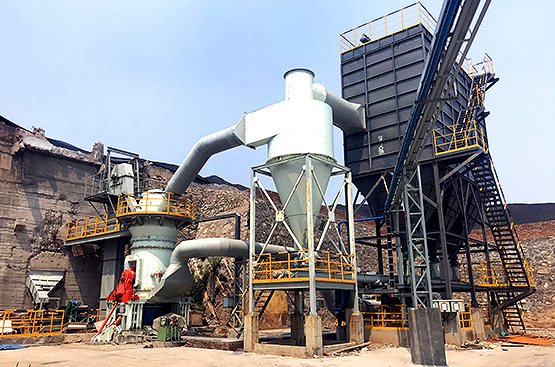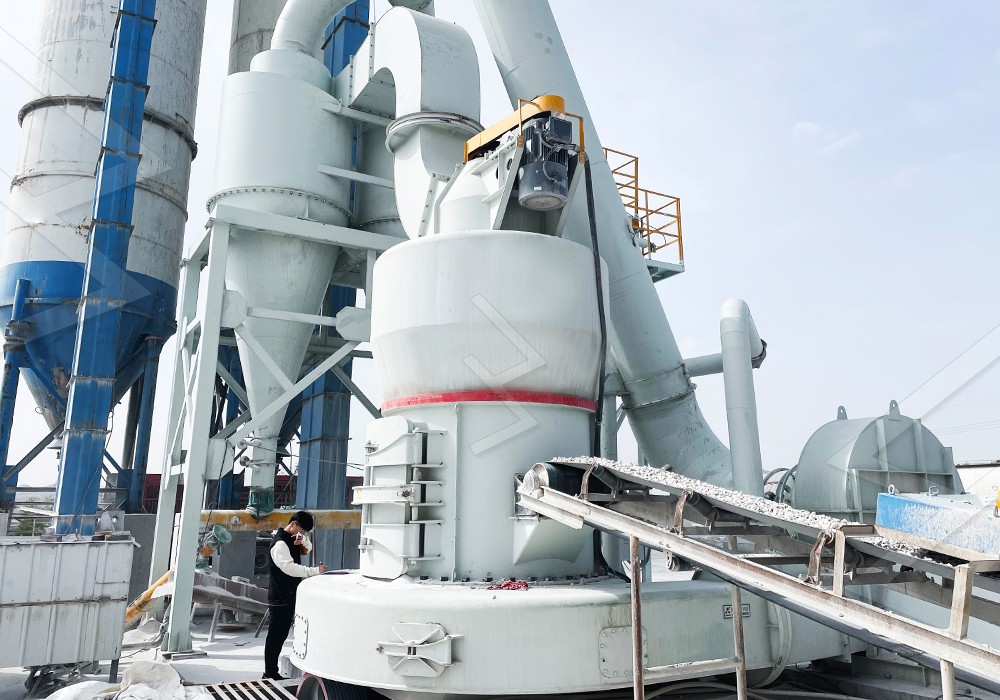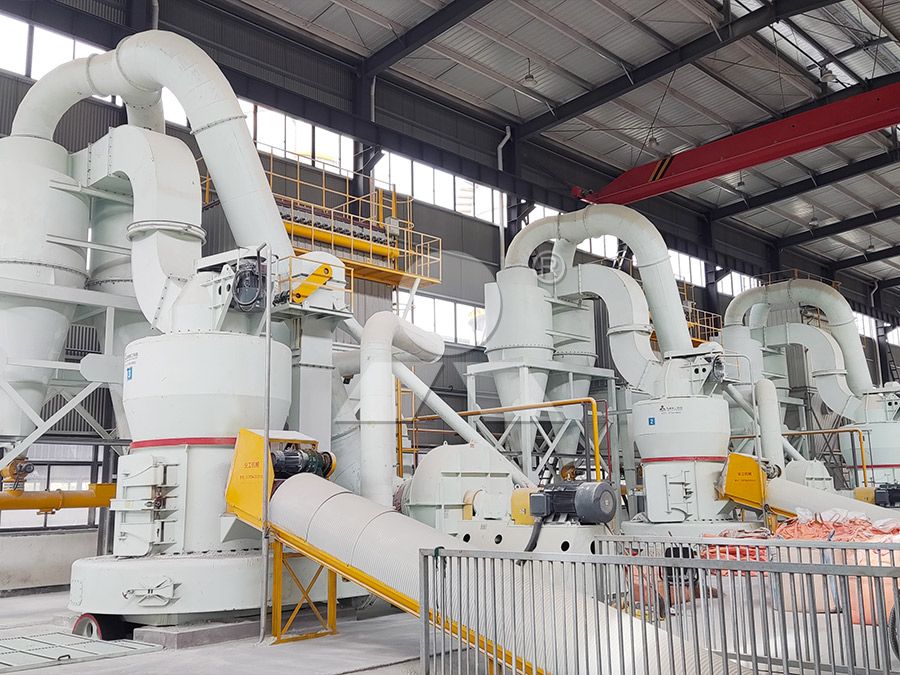Industry News
Talc Grinding Mill Review for Cosmetic and Skincare Powder Production in Philippines
2025-11-13 09:45:30
We are Liming Heavy Industry, a manufacturer of various types of industrial crushers, such as Raymond Mill, Trapezoidal Mill, Vertical Mill, Ultrafine Mill, Ball Mill, etc.
Our mills can process the following minerals:
limestone, quicklime, kaolin, talc, barite, bentonite, calcium carbonate, dolomite, coal, gypsum, clay, carbon black, slag, cement raw materials, cement clinker, etc.
If you need a mill to process stone or minerals into powder, please feel free to contact me (WhatsApp: +86 153 3380 7511). Thank you.
Talc is one of the most widely used minerals in the production of cosmetics and skincare products. Known for its soft texture, absorbent properties, and versatility, talc is a key ingredient in powders, foundation, body lotions, and other personal care products. To achieve the desired properties for cosmetic formulations, talc must be processed to a fine powder with specific particle size and texture. This is where the role of talc grinding mills becomes crucial. In this article, we will review the importance of talc grinding mills for cosmetic and skincare powder production in the Philippines, and how the right grinding equipment can enhance product quality and production efficiency.
_1761355701094.jpg)
Importance of Talc in Cosmetics and Skincare Products
Talc's primary use in cosmetics and skincare products is as a filler and absorbent material. It helps to improve the texture of the products, enhancing their smoothness and providing a silky feel on the skin. Additionally, talc acts as an anti-caking agent, preventing powders from clumping, and it helps to absorb moisture, keeping skin dry and preventing the build-up of excess oil.
The quality of talc powder plays a significant role in determining the quality of the finished cosmetic products. The finer the talc powder, the smoother the texture and more uniform the product. Therefore, the process of grinding talc to achieve the ideal particle size distribution is vital for the production of high-quality skincare and cosmetic powders.
Grinding Process for Talc: Why it Matters for Cosmetic Production
Talc is typically extracted from natural talc deposits and then ground into fine powder to be used in cosmetics. The grinding process involves reducing the size of talc particles to a fine powder, often measured in mesh size or micron. The desired fineness of talc depends on the specific application it will be used for. For instance, in skincare powders and foundation, the powder needs to be ultra-fine to ensure smooth application and a non-greasy finish.
The grinding method used has a direct impact on the quality of the talc powder. Inadequate grinding can result in uneven particle sizes, which could affect the texture, performance, and overall quality of the cosmetic product. Therefore, selecting the right grinding mill is crucial.

Types of Grinding Mills for Talc
There are various types of grinding mills used in the production of talc powder, each with its advantages and limitations. The choice of grinding mill depends on the required particle size, production volume, and energy efficiency.
The Raymond mill is one of the most widely used machines for grinding talc into fine powder. It is known for its high efficiency, low energy consumption, and ability to produce talc powder with uniform particle size. Raymond mills are particularly effective for producing talc in the 80-400 mesh range, which is suitable for cosmetic powders.
Vertical roller mills (VRMs) are another popular choice for grinding talc. These mills offer higher capacity and more efficient grinding compared to traditional Raymond mills. They are ideal for large-scale production and can produce talc powder with a very fine particle size, typically in the 200-800 mesh range. VRMs are known for their energy efficiency and ability to grind soft minerals like talc with minimal wear and tear.
Ball Mills
Ball mills can also be used to grind talc, particularly when a very fine particle size is required. However, ball mills are less energy-efficient compared to Raymond and vertical roller mills. They are typically used in smaller-scale production and may not be ideal for large-scale cosmetic powder manufacturing.

Benefits of Using Liming Heavy Industry Grinding Mills for Talc Processing
Liming Heavy Industry is a leading manufacturer of grinding mills, offering a range of advanced milling solutions for talc processing. The mills produced by Liming Heavy Industry are designed to provide high efficiency, low energy consumption, and the ability to achieve precise particle size control, making them an ideal choice for cosmetic and skincare powder production.
High Precision and Consistent Quality
Liming’s mills offer excellent particle size control, ensuring consistent quality of talc powder for cosmetic products. With advanced technology, these mills can produce talc powder with a fine and uniform particle size, which is crucial for achieving the desired texture and smoothness in cosmetic products.
Energy Efficiency
Energy efficiency is a critical factor in reducing production costs. Liming’s grinding mills are designed with energy-saving features, allowing manufacturers to achieve high production volumes with lower energy consumption, which is especially important in large-scale cosmetic production.
Durability and Reliability
Liming Heavy Industry’s mills are built with high-quality materials and advanced engineering, ensuring durability and long-lasting performance. These mills are designed to withstand the demands of continuous operation, providing manufacturers with a reliable solution for talc grinding in the cosmetic industry.

Versatility
Liming’s mills are versatile and can be used to grind various materials, including talc, limestone, kaolin, and other minerals. This makes them a suitable choice for manufacturers who need flexibility in their production processes.
Conclusion
Talc plays a significant role in the production of cosmetic and skincare products, and achieving the desired texture and performance requires high-quality talc powder. The right grinding mill is essential to produce talc with the correct particle size, ensuring the best results in cosmetic formulations. Liming Heavy Industry’s advanced grinding mills offer an excellent solution for talc processing, providing high efficiency, energy savings, and consistent product quality. For manufacturers in the Philippines and beyond, investing in Liming’s grinding mills can lead to better product quality, improved production efficiency, and cost savings in the long term.
Frequently Asked Questions (FAQ)
1. What is the ideal particle size for talc in cosmetic products?
The ideal particle size for talc in cosmetic products is typically in the 80-400 mesh range, as this ensures a smooth texture and easy application in products like powders and foundations.

2. What are the main advantages of using Raymond mills for talc grinding?
Raymond mills are efficient, energy-saving, and capable of producing talc powder with a uniform particle size, making them ideal for the production of high-quality cosmetic powders.
3. Can Liming Heavy Industry mills be used for other minerals besides talc?
Yes, Liming Heavy Industry’s mills are versatile and can be used for grinding a wide range of minerals, including limestone, kaolin, and more, providing flexibility for different production processes.
4. How does the grinding process affect the quality of talc powder?
The grinding process affects the particle size and distribution of talc powder. Finer powders provide better texture and performance in cosmetics, while improper grinding can result in inconsistent product quality.
5. What factors should be considered when choosing a grinding mill for talc?
Key factors to consider when selecting a grinding mill for talc include desired particle size, production capacity, energy efficiency, and the specific requirements of the cosmetic or skincare product being produced.







